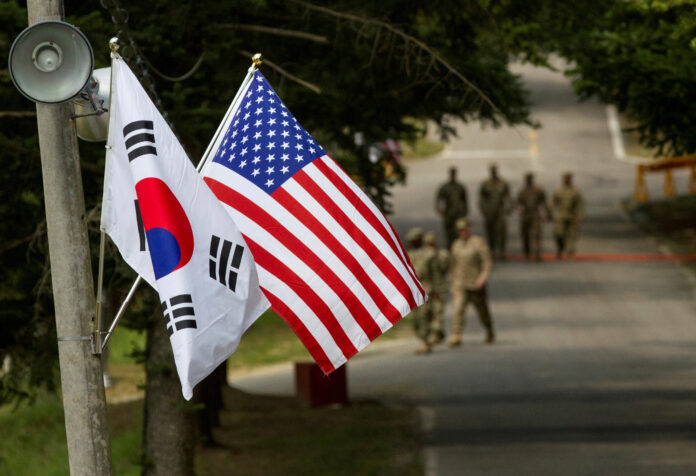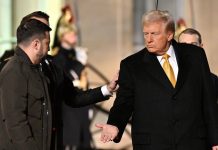
SEOUL, South Korea (AP) Jan,4 — South Korea maintained that Seoul and Washington are discussing its involvement in U.S. nuclear weapons management in the face of intensifying North Korean threats, after President Joe Biden denied that the allies were discussing joint nuclear exercises.
The purported difference came as South Korea is seeking a greater U.S. security commitment after North Korea’s record number of missile tests and escalating nuclear doctrine last year caused security jitters among many people in the South.
Some experts say South Korea’s statement on the discussion is likely largely based on an agreement between their defense chiefs in November to conduct table-top exercises, usually computer simulations, annually and further strengthen the alliance’s information sharing, joint planning and execution. In November, they also reaffirmed the U.S. commitment to providing extended deterrence, a reference to a U.S. promise to use full U.S. capabilities, including nuclear, to protect its allies.
After Biden’s comments created a brief stir in South Korea, Yoon’s top adviser for press affairs, Kim Eun-hye, issued a statement Tuesday to reconfirm Yoon’s earlier remarks. Kim said the two countries “are discussing an intel-sharing, a joint planning and subsequent joint execution plans over the management of U.S. nuclear assets in response to North Korea’s nuclear (threats).”
The White House National Security Council in a statement on Tuesday said Biden and Yoon have “tasked their teams to plan for an effective coordinated response to a range of scenarios, including nuclear use by North Korea.”
A senior Biden administration official said U.S. and South Korean officials are expected to hold table-top exercises soon to chart out a potential joint response to a range of scenarios, including deployment of a nuclear weapon by the North. The official spoke on the condition of anonymity to discuss planning.
Moon Seong Mook, an analyst for the Seoul-based Korea Research Institute for National Strategy, said Yoon likely was referring to the November agreement on the alliance’s capabilities, which he said definitely include U.S. nuclear assets that are essential to the U.S. extended deterrence commitment.
“South Korea isn’t a nuclear state so it won’t be likely South Korea jointly using U.S. nuclear weapons. However, the language (the November agreement) implied that the South and the United States would discuss the operation of U.S. nuclear weapons from the planning stage to the training stage.
Some observers say Yoon’s comments to the Chosun Ilbo newspaper did not reveal much new developments on the issue, but Moon said that Yoon was a U.S. strategist at a time when North Korea escalated its nuclear threat to the south. may have sought to emphasize efforts to increase the effectiveness of the United States’ enhanced deterrence. Korea. Yun said in an interview that he finds it difficult to provide security for his men at the current level of US security commitments.
“It’s an unnecessary argument. Neither side made any inaccurate statements,” said Park Won-gon, a professor at Ewha Womans University in Seoul. “Enhancing deterrence is a commitment, a promise, not a treaty or a binding contract,” he said. “As for South Korea, they trust the United States, but with the growing nuclear threat from North Korea, they think there should be a way to institutionalize the United States. and execution are key.”
South Korea has no nuclear weapons and is under nuclear protection





